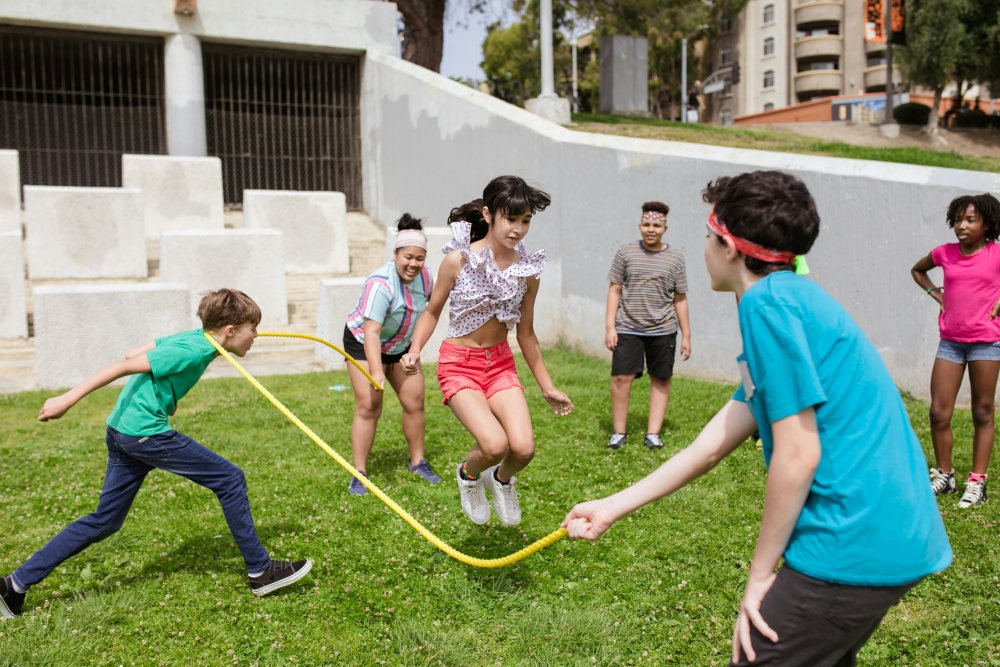School camps are much more than just a break from the classroom—they provide students with valuable experiences that help shape their personal development. While academic learning is important, so is the development of essential life skills, such as teamwork and social interaction. Camps for schools are designed to give students opportunities to engage in activities that promote collaboration, communication, and leadership, all of which are vital for their growth both inside and outside the classroom.
Here’s why school camps are crucial for building teamwork and social skills in students.
One – Encouraging Collaboration in Real-World Settings
Teamwork is a vital skill that students will use throughout their lives, whether in school, sports, or their future careers. School camps create an ideal environment for students to practice teamwork in real-world settings. Activities such as obstacle courses, group challenges, and team sports require students to work together to achieve common goals. These activities encourage them to share ideas, divide responsibilities, and trust one another to complete tasks successfully.
For example, building a shelter or navigating a ropes course requires the input and cooperation of every team member. Each student must communicate clearly, listen to their peers, and collaborate to find the best solutions. This hands-on approach teaches students how to cooperate in different situations, making them better equipped to work in teams in other areas of their lives.
By learning to work effectively as part of a group, students develop a greater appreciation for the value of teamwork, which is essential for their future success.
Two – Developing Communication Skills
Communication is the foundation of effective teamwork, and school camps provide numerous opportunities for students to improve their communication skills. In the camp environment, students are encouraged to express their ideas, listen to others, and resolve conflicts in a positive and constructive manner. Whether they are discussing strategies for a team challenge or planning their next activity, students learn the importance of clear and respectful communication.
Camps for schools often include team-building exercises that require students to collaborate closely, making it necessary to communicate clearly to achieve shared goals. These exercises help students practice active listening, assertiveness, and negotiation skills—skills that are crucial for effective collaboration and social interaction.
Through these activities, students gain confidence in their ability to express themselves and understand the perspectives of others, leading to stronger relationships and more successful teamwork.
Three – Fostering Leadership and Responsibility
School camps offer students the chance to take on leadership roles in a supportive and encouraging environment. Whether leading a group activity, organizing their peers, or taking responsibility for certain aspects of camp life, students learn to step up and guide others. These leadership opportunities help students develop important qualities such as decision-making, accountability, and empathy.
At camps for schools, leadership is often rotated, allowing different students to take the lead at various times. This ensures that all students have the chance to develop their leadership skills, regardless of their usual role within a group. It also teaches students that leadership is not about being in charge but about inspiring and supporting others to achieve a common goal.
Learning how to lead and follow in different situations helps students become more adaptable, responsible, and effective in group settings.
Four – Building Trust and Empathy Among Peers
One of the most valuable aspects of school camps is the opportunity for students to build trust and empathy with their peers. When students participate in activities that require them to rely on one another—whether it’s a trust fall exercise or working together to solve a problem—they learn the importance of trust in a team dynamic.
Camps for schools create an environment where students can connect with their classmates in ways that they may not have in a traditional school setting. Away from the classroom, students can interact more freely, get to know one another on a deeper level, and build strong, supportive relationships. These connections foster a sense of belonging and trust, which is crucial for effective teamwork.
Empathy also plays a key role in these experiences. As students work together, they gain a better understanding of each other’s strengths, weaknesses, and emotions. This heightened awareness of their peers’ perspectives helps them develop compassion and patience, further strengthening their social bonds.
Five – Boosting Confidence in Social Interactions
For some students, social interactions can be challenging, whether due to shyness or a lack of confidence. School camps offer a supportive environment where students can practice their social skills and develop confidence in their ability to connect with others.
Participating in group activities and shared experiences helps students feel more comfortable interacting with their peers. As they contribute to team efforts and engage in positive social interactions, they build self-esteem and confidence. The camp environment is often less formal than school, making it easier for students to relax and form friendships.
As a result, students return from camp with a renewed sense of confidence in their ability to socialize, work in teams, and build meaningful relationships with others.
Six – Learning Conflict Resolution
Conflicts are a natural part of group dynamics, and school camps provide an ideal setting for students to learn how to resolve them effectively. When disagreements arise during group activities, students are encouraged to address issues calmly, listen to different viewpoints, and work together to find solutions.
By practicing conflict resolution in a safe and structured environment, students develop the skills needed to manage disagreements constructively, both at camp and in their everyday lives. These skills are essential for maintaining healthy relationships and ensuring successful teamwork in the future.
Conclusion
Camps for schools play a crucial role in building teamwork and social skills, offering students the chance to engage in collaborative activities, improve communication, and develop leadership qualities. Through these experiences, students learn how to work together effectively, build trust, and navigate social interactions with confidence.
School camps not only enhance academic learning but also equip students with the essential life skills they need to succeed in group settings, both inside and outside the classroom. By fostering a supportive and engaging environment, school camps provide the perfect opportunity for students to develop the teamwork and social skills that will benefit them throughout their lives.









